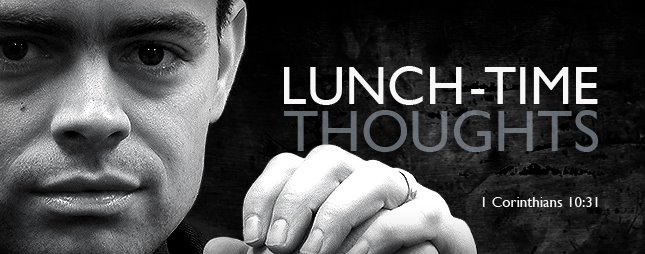DOCTRINES OF THE CHURCH
Doctrine 28 / 36: The Lord's Supper
The night before Jesus' crucifixion, Jesus gathered His disciples to Him to have their last supper together before He was to be killed. After this meal, they went to the garden to pray and then He was taken to be tried and executed. At this supper, Jesus institutes one of the ordinances that He gives to the church, and which Paul reiterates in 1 Corinthians 11, the Lord's Supper (1 Corinthians 11:20), or Communion (1 Corinthians 10:16).
The Lord's Supper consists of two elements: the cup, and the bread. The "bread" refers to the body of Christ that was broken for the world (Matthew 26:26). Jesus is the "bread of life" (John 6:35), and He was broken. The "fruit of the vine" or the "cup" as it is referred to when speaking of the Lord's Supper is a representative of blood (Matthew 26:28). Often grape juice, or wine, is a picture of blood in the Bible (Revelation 14:20). The Lord's Supper was a direct picture of the braking of Jesus' body, and the spilling out of His blood on the cross.
Jesus gives the purpose for the Lord's Supper when He says, "this do in remembrance of me" (Luke 22:19, 1 Corinthians 11:24). The Lord's Supper is a time when the church is to come together and specially think on the sacrifice, the broken body and spilled blood of Jesus Christ for the remission of sins. Paul explains another element of the Lord's Supper when he refers to it as "Communion." "The cup of blessing which we bless, is it not the communion of the blood of Christ? The bread which we break, is it not the communion of the body of Christ?" (1 Corinthians 10:16). Paul is here explaining the mystery of the Body of Christ, and how when a believer takes part in the blood and body of Christ, he is put into communion with Christ. This communion with Christ carries on to the communion with fellow believers. The Lord's Supper is also to be a time of communion, of fellowship, with the fellow saints of God. For that reason, everyone is to eat dinner at home before coming to the Lord's Supper so that carnal lusts do not arise and cause division among the brethren for simple food (1 Corinthians 11:18-22).
A grave warning is issued to those that are partaking in the Lord's Supper. "Wherefore whosoever shall eat this bread, and drink this cup of the Lord, unworthily, shall be guilty of the body and blood of the Lord. But let a man examine himself, and so let him eat of that bread and drink of that cup. For he that eateth and drinketh unworthily, eateth and drinketh damnation to himself, not discerning the Lord's body" (1 Corinthians 11:27-28). The Lord's Supper is to remind the saints that Christ died for their sins. It was their sins which necessitated a Savior and His sacrifice. The Lord's Supper is to be a time to remember this, to remember the sacrifice, and motivate the Christian to live right. If a person despises the work on the cross, and if he shows it during the Lord's Supper, he is "not discerning the Lord's body." No man is worthy of partaking of the body of Christ; it is those that treat Christ's sacrifice unworthily that bring damnation to themselves. The Lord's Supper is to be a time to sanctify one's self, and to demonstrate that he does live right. It is improper to eat of the Lord's table, and then turn around and eat of the "table of the devil," and all that he offers in this world (1 Corinthians 10:21).
Transubstantiation is the Roman Catholic doctrine that teaches that the bread and juice of the Lord's Supper actually change their substance into the literal body and blood of Jesus. They make Communion a necessary part of a man's salvation because "Except ye eat the flesh of the Son of man, and drink his blood, ye have no life in you" (John 6:53). However, at the Last Supper, Jesus told His disciples that the bread and juice they were eating were His body and blood, yet His body had not been broken as of yet. He was speaking spiritually, not physically (John 6:63). The drinking of blood is prohibited in the Bible (Leviticus 17:10-11; Acts 15:20), and if Christ were speaking literally, He would be violating His own laws.
Consubstantiation is the teaching held by some, including the Lutherans, that the elements to not actually change into the body and blood of Christ, but in a very real, and spiritual way, He is present in the bread and juice. The Bible teaches that the elements are there to help the believers remember what Christ did. There is not a spiritual significance in the actual bread any more than there would be in the bread offered to an idol; it is still the same bread. It is what is done with the bread and juice that makes them important.
"This is my blood of the new testament."

No comments:
Post a Comment